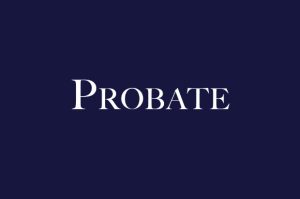Most people prefer to give a part of their estate or assets to a family member and the other half to a charity or other persons when they die. How can this plan be implemented? Only through estate plan and a well created estate document. A will is an estate document that dictates how your estate would be shared and distributed only to preferred individuals whom you have listed. Since you would not be around at this time to monitor how your properties are been distributed, it is very important to make your desires strongly presented in an estate document. As such, you need to avoid mistake and all from of error, should you want your assets to get to rightful beneficiaries.
How do you avoid simple but yet costly mistake with your Will?
To avoid mistakes that can jeopardize how your estate is being shared as well as lengthen the probate process, you need an attorney that does Wills. These attorneys are estate planning attorneys that can help you create fitting estate document matching how you want your estate to be shared to desire beneficiaries. State laws govern how estate documents are created, also, they provide all jurisdiction to any inclusion that can made in a Will. Therefore, you need someone who know the nitty-gritty of these state laws so you don’t fall a victim of an invalid will. Attorneys who does Wills know how to handle all Will creation formalities, so you need to speak to one before making that estate plan.
When does a will become effective?
A free Will only become effective when the will maker dies. The personal representative or estate executor would proceed to implementing the plans. However, probate court decides whether the will is fit for implementation.
Other types of Will.
Living will
A living will allows you to write down your wishes concerning the kind of healthcare you desire during end-of-life situations. A living will only become effective when your physician notices that you have lost that capacity to make such decisions.
The incapacity herein referred to: Lacking understanding or knowledge whatsoever of the health care options available and lacking the ability to convey your thoughts or decision to the understanding of others through any means possible.
Pour-over will
Assets funded into an irrevocable trust permanently escape your reach, and will pass down to your beneficiaries tax-free and without the necessity of probate. Since you would be unable to use these assets, the idea is to go around this by simply creating a Pour-over will and instruct that those assets be poured over into the trust as soon as you pass away. That way, you can use the assets up till your death, after which they are funded into the trust.
Legal requirements for a valid will
- The principal or will maker must be of legal age of adulthood
- The document must bear the signature of the maker
- The signatures of two witnesses must also be visible to connote their presence during the creation of the document.
- The will should clearly bear the name beneficiary of the estate and what should be allocated to each person.
- The value of the estate should be recorded.
- The executor for the estate should be named and mentioned in the will documents.
- Only one witness is allowed to be directed related by blood to the principal.
Having a Will vs. not having a Will.
When you pass away leaving a will and estate, your will and estate must pass through a court process known as probate before the estate can be distributed according to your will. The executor of the will is faced with a lot of legal responsibilities; probate can often be tiresome, costly and lengthy, but having a professional working with you guarantees the smoothest and shortest probate possible. If you have just found out that you were named as an executor, get help in probating the estate by contacting our offices today. Looking further, when someone dies without a proper estate plan document, in this case, a will, such individual would be said to have died intestate; meaning dying without a will or estate document. The properties of the decedent in this case would be shared though the intestacy laws of the state.









